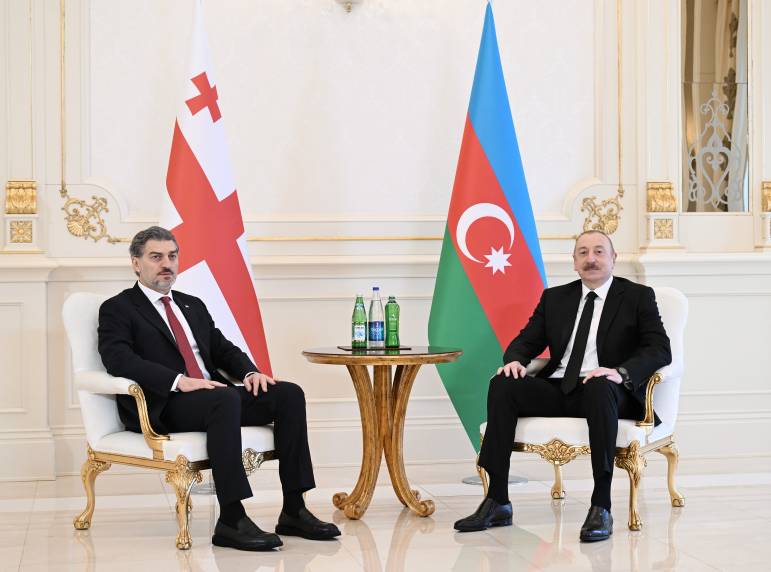20:15
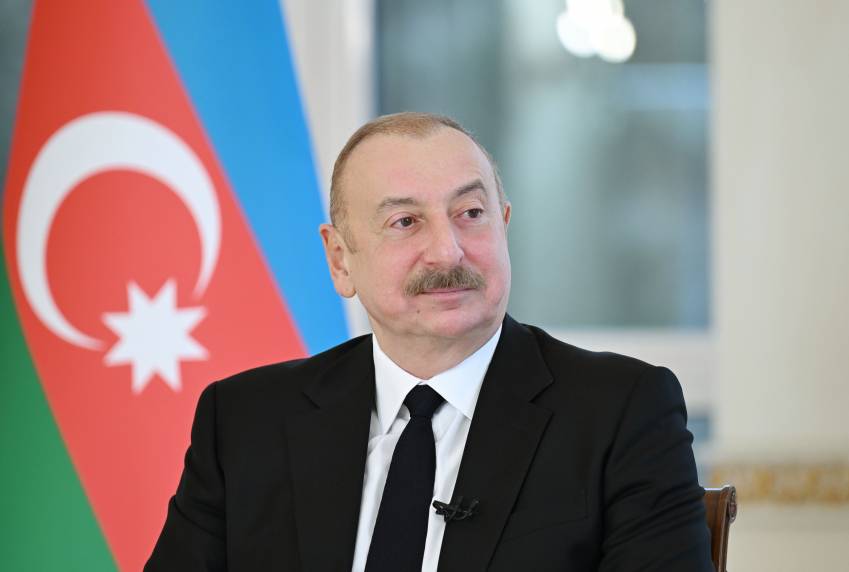
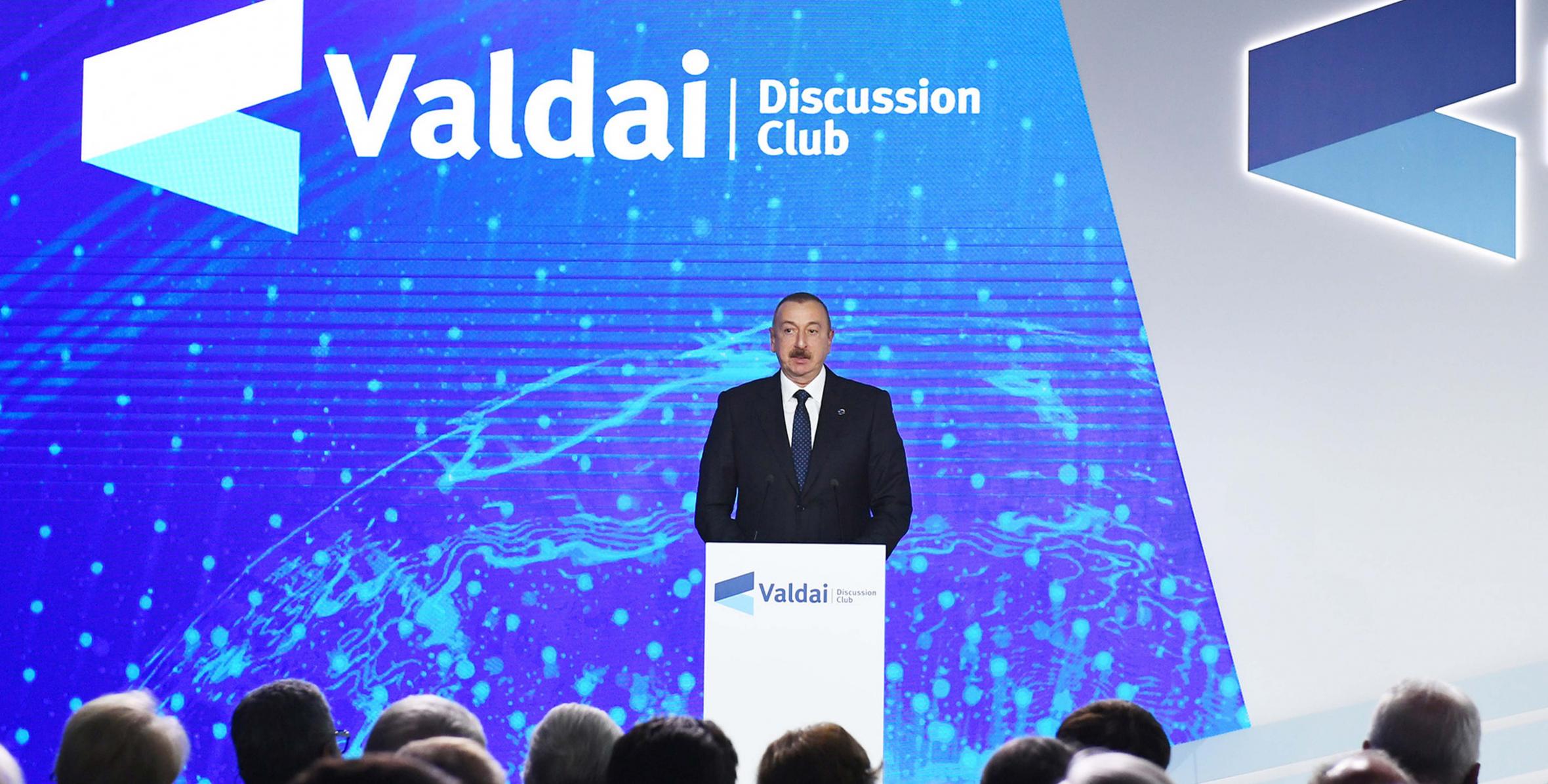
Dear Vladimir Vladimirovich,
Dear ladies and gentlemen!
First of all, I would like to express my deep gratitude to Vladimir Vladimirovich Putin for the invitation to take part in the regular meeting of the Valdai Discussion Club. I would like to note that the club’s activities are followed with great interest in Azerbaijan. It has transformed into one of the most important international venues where current issues of the modern world are discussed and recommendations are made for deepening cooperation.
I listened to Vladimir Vladimirovich’s speech with great interest and I agree with him in everything. The only thing he did not say when speaking about the situation that developed in Russia at the turn of the millennium is that the main factor behind Russia emerging from the most difficult ordeals with dignity is the factor of Vladimir Putin. This is true and everyone should know that. It is thanks to his courage, determination, wisdom and patriotism that Russia emerged from the most difficult trials and is a leading world power today.
We had a meeting with Vladimir Vladimirovich today. Our meetings are regular, and even a short interval of a few months is already perceived by us as a pause. The relations between our countries are of strategic importance. It is no coincidence that we call each other strategic partners. Today we reviewed a very broad agenda of bilateral relations and outlined the ways for further cooperation. There is a very active political dialogue between our countries. Regular meetings of heads of state and other officials contribute to the deepening of our cooperation. We closely interact with each other within the framework of international organizations, traditionally supporting each other in the most important and pressing issues. At the June session of the Parliamentary Assembly of the Council of Europe, where the issue of Russia's return to this organization was discussed, the entire Azerbaijani delegation voted for Russia to return to PACE and would like to congratulate our colleagues on the fact that this happened.
There is a positive trend in the development of trade and economic relations. We increase our turnover every year. It is becoming more and more difficult to do because last year there was something around a 20-percent increase, this year there is even more. The identification of priority areas of cooperation within the framework of five “roadmaps” will undoubtedly lead to a further increase in trade relations. About 700 companies with Russian capital operate in Azerbaijan. Azerbaijani investments in Russia are in the amount of 1.2 billion dollars and the volume of Russian investments in Azerbaijan is 4.6 billion dollars. We are slightly behind here, but there are objective reasons for that. I would also like to note that Russian banks have helped us a lot with industrialization – they have provided loans of almost a billion dollars for projects in the real sector of the economy.
Our military and technical cooperation is actively developing. Today we agreed that we will continue to work in this direction despite the fact we already have contracts on the acquisition of Russian equipment amounting to 5 billion dollars, of which 3 billion has already been implemented. As I said, we intend to continue work in this direction.
Another important area of our cooperation is the transport sector. In 2018, eight times more cargo was transported along the North-South corridor than in the previous year. The volumes are still small, but the dynamics are impressive. I would also like to note that the North-West corridor has been launched. Cargo from Russia is sent through the territory of Azerbaijan not only to the south but also to the west – largely due to the fact that we agreed on a tariff policy and due to the fact that major investments have recently been made in modern transport infrastructure in Azerbaijan.
One indicator of our relations most clearly testifies to the spirit and nature of relations not only between countries, but also between our peoples. Last year, 880,000 Russians visited Azerbaijan. This year the number is already biggest. It is no secret that tourists go not only to see the sights or taste the national cuisine. They go to places where it is safe and comfortable, and where they feel at home. I think this speaks of the rapid growth of tourism.
I would like to note the great achievements in the field of education. A branch of Moscow State University has been operating in Azerbaijan for many years, as well as a branch of the First Moscow State Medical University. All state universities in Azerbaijan have branches in Russian. A total of 25,000 students study in Russian. Also, 130,000 schoolchildren in 338 schools in our country study in Russian in 338 schools with Russian education.
One of the topics of ongoing discussion is the settlement of the Armenian-Azerbaijani Nagorno-Karabakh conflict. Russia is a co-chair of the OSCE Minsk Group, which has a mediation mandate. I should note that Nagorno-Karabakh and seven other districts of Azerbaijan have been under Armenian occupation for over 25 years. Nagorno-Karabakh is the original Azerbaijani land. In Soviet times, the Nagorno-Karabakh autonomous region was set up. I must say that in connection with the conflict there is a fairly wide range of opinions often not reflecting realities. Therefore, in order to clarify, I must say that in 1921 the decision of the Caucasian Bureau was literally “to leave Nagorno-Karabakh within Azerbaijan”, not transfer it, as the Armenian side often interprets it. Before the conflict began, the Azerbaijani and Armenian populations in the proportion of 25 to 75 percent lived in the Nagorno-Karabakh autonomous region of the Azerbaijan SSR. As a result of the conflict, the entire Azerbaijani population was expelled from Nagorno-Karabakh, as well as from seven other districts of Azerbaijan. In other words, ethnic cleansing was carried out.
Today there is no Azerbaijani population in the occupied territories, while most of the occupied territories are scorched and destroyed lands – destroyed houses, schools, public buildings. As a result of the conflict, Azerbaijan has been faced with a humanitarian catastrophe. More than 700,000 IDPs from Nagorno-Karabakh and other occupied territories of Azerbaijan, plus 250,000 Azerbaijanis were driven out of their historical lands in the territory of modern Armenia.
The UN Security Council has adopted four resolutions, including resolutions requiring immediate and unconditional withdrawal of Armenian forces from the occupied territories. For more than 25 years they have not been fulfilled. And here we come to the important issue of implementing the decisions made. The UN Security Council is the highest international body, and if the decisions adopted by the Security Council have not been implemented for more than 25 years, this raises a lot of questions about the effectiveness of this organization.
We in Azerbaijan are concerned about the selective nature of the implementation of resolutions. Sometimes they are carried out in a matter of days, sometimes they are not required at all for certain military operations, in our case, the resolutions remain on paper.
The solution of the Armenian-Azerbaijani Nagorno-Karabakh conflict should be within the framework of the territorial integrity of Azerbaijan, the UN Charter adopted by the whole world, resolutions of the UN Security Council and the Helsinki Final Act.
I have to say that the Prime Minister of Armenia has often said recently that a solution to the conflict should be acceptable to the people of Azerbaijan, the people of Armenia and the people of Nagorno-Karabakh. I must say that the concept of “the people of Nagorno-Karabakh” does not exist. There is population of Nagorno-Karabakh, which consisted of the Azerbaijani and Armenian people before the conflict, and they have equal rights.
As for a solution acceptable for Azerbaijan, it consists in restoring the territorial integrity of Azerbaijan recognized by the whole world and returning refugees and internally displaced persons to their original lands, including Nagorno-Karabakh. This is consistent with Security Council resolutions and the Helsinki Final Act.
I must say that the military aggression of Armenia against Azerbaijan continues to this day. Yesterday, a civilian, a resident of Gazakh District which is located far from the conflict zone, on the border between Armenia and Azerbaijan, was killed by an Armenian sniper. I must also say that during the military provocation in April 2016, six civilians, including a child, a girl, were killed in Azerbaijan.
I would also like to touch upon the statement of the Prime Minister of Armenia that has caused surprise not only in Azerbaijan. A corresponding reaction was also given to it by the Russian Federation within the framework of the Valdai Forum. The statement is as follows: "Karabakh is a part of Armenia, and full stop." Well, first of all, it is a lie, to put it mildly. Karabakh – both upper and lower – is recognized by the whole world as an integral part of Azerbaijan. Armenia itself does not recognize this illegal entity. Karabakh is a historical and ancestral Azerbaijani land. Therefore, Karabakh is Azerbaijan, and exclamation mark!
Despite the occupation and the humanitarian catastrophe of the early 1990s, when an eighth of our country’s population were refugees, Azerbaijan has come a long way in development and creation. With the exception of the first years of independence when a puppet, anti-national and corrupt regime of the Popular Front ruled in the country, Azerbaijan has been living in a stable environment for 26 years. The key contribution to that was made by President Heydar Aliyev who managed to prevent civil war, stop the occupation, overcome chaos and ruin, and put Azerbaijan on a path of development. Thus, for 26 years, the Azerbaijani people have been living in the conditions of stability and development.
The international standing of our country is strengthening. One indicator of this is the election of our country as a non-permanent member of the UN Security Council several years ago. A total of 155 states voted for us. It was not easy, it took us three days and 16 rounds but justice triumphed. I would also like to note that the Russian Federation and all other 154 countries provided us with great support.
We are pleased that Baku has for many years been selected as the venue for meetings of the high military command of Russia and NATO. Thus, we see this as an expression of trust in us. This month, at the end of it, a Summit of the Non-Aligned Movement will be held in Baku, and Azerbaijan will assume chairmanship of this organization for three years.
In addition to the international agenda, of course, we mainly focus on domestic issues related to economic growth. Great results have been achieved in this direction in recent years. Azerbaijan is a country with a low external public debt. By this indicator, we are in ninth place and our external debt accounts for 17 percent of the GDP. For reference, let me say that Russia is in sixth place. We are not in competition but always focus on the best results.
A lot has been done to reduce poverty, which has declined from 49 to 5 percent since 2003. Also, economic growth has allowed us the opportunity to address social problems. This year, the minimum wage has grown almost twice and the minimum pension by 70 percent. We invest in modern technology – about 80 percent of our population are Internet users. Azerbaijan is a country with three satellites, two are telecommunication ones and one is for monitoring the surface of the earth.
In conclusion, I would like to say and support the thesis of Vladimir Vladimirovich that transport projects not only increase trade, but also serve as a bridge between peoples in this direction. The North-South and East-West projects that pass through our country are precisely steps and projects in the direction when international cooperation expands and risks reduce.
Thank you for your attention!

Your Eminence,
We were deeply saddened to hear of the passing of His Holiness Pope Francis, Head of the Holy See and one of the most prominent religious figures of our time.
In the person of Pope Francis, the international community and the Catholic world have lost...
21 April 2025, 14:13I sincerely congratulate you and the entire Christian community of Azerbaijan on the sacred holiday of Easter, and I extend my wishes of happiness and well-being to all of you.
In Azerbaijan, which has rich traditions of tolerance, there has never been a case of...
18 April 2025, 16:25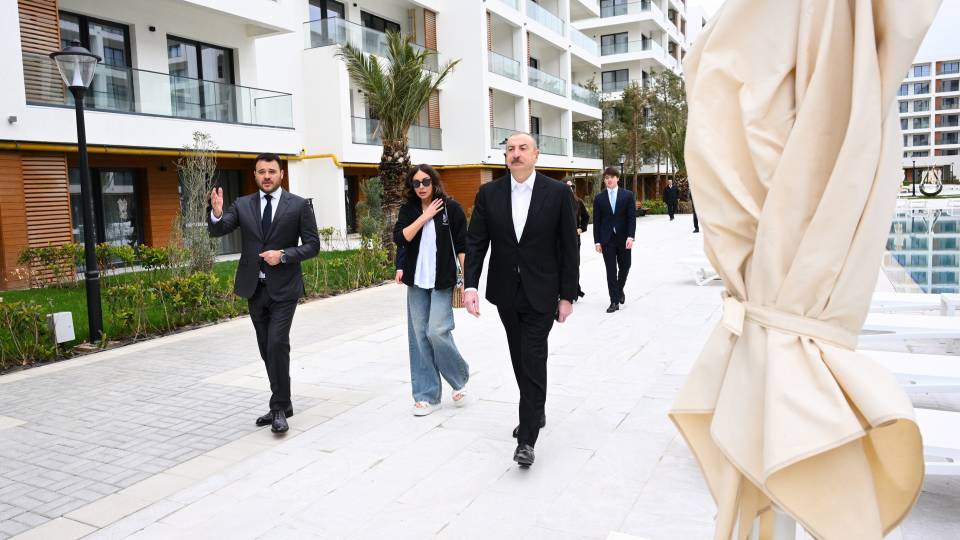
Dear Mr. Çavuşoğlu,
I was deeply saddened to learn of the passing of your father, Osman Çavuşoğlu — a profound loss for your family.
In this time of sorrow, I share in your grief and extend my deepest condolences to you and all the members of your family,...
18 April 2025, 12:37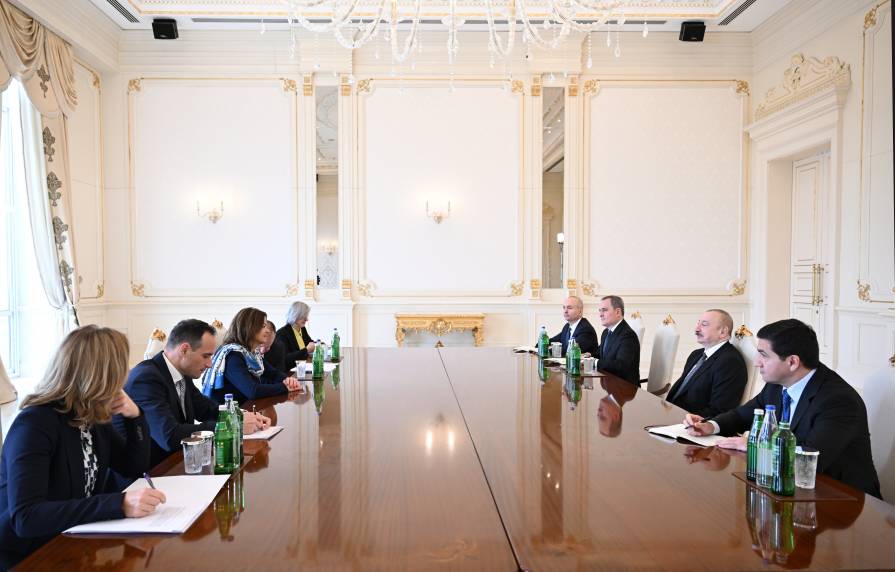
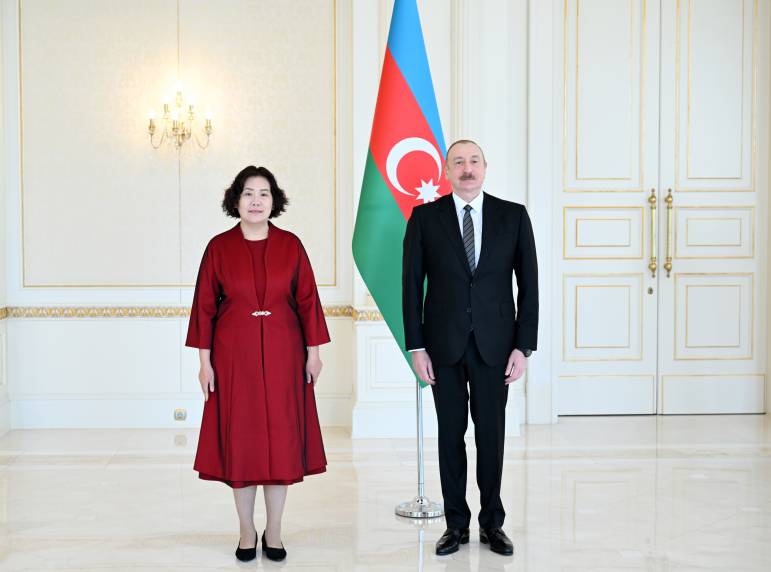
We were deeply saddened to learn of the passing of Richard Armitage – an eminent statesman, distinguished diplomat, dedicated public servant, and a great friend of Azerbaijan.
His years-long, productive service in international politics and diplomacy, coupled with...
16 April 2025, 18:06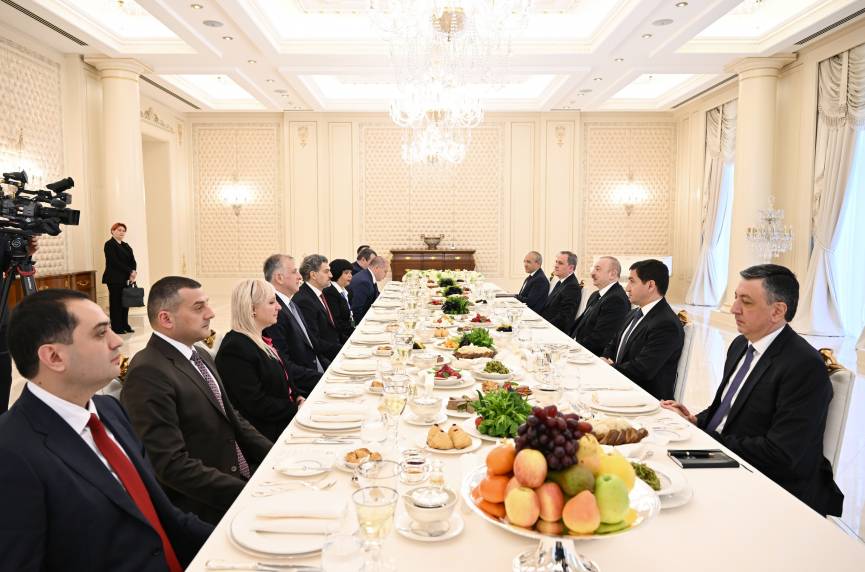
Statement by President Ilham Aliyev
- Dear Mr. President,
Dear guests,
Ladies and gentlemen,
Dear Mr. President, I would like to once again sincerely welcome you to Azerbaijan! I cordially congratulate you again on your election as a President and wish you ...
16 April 2025, 12:12